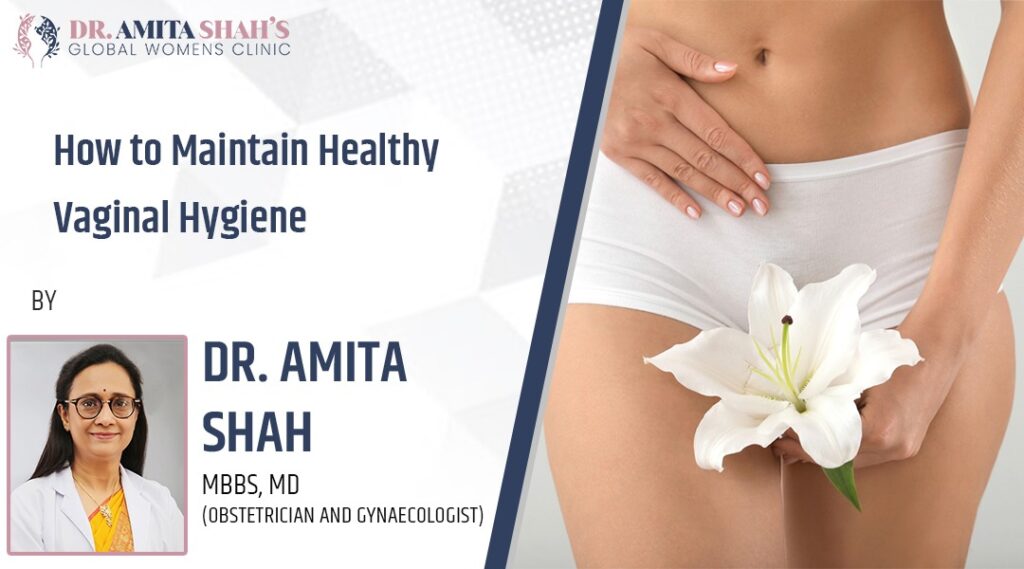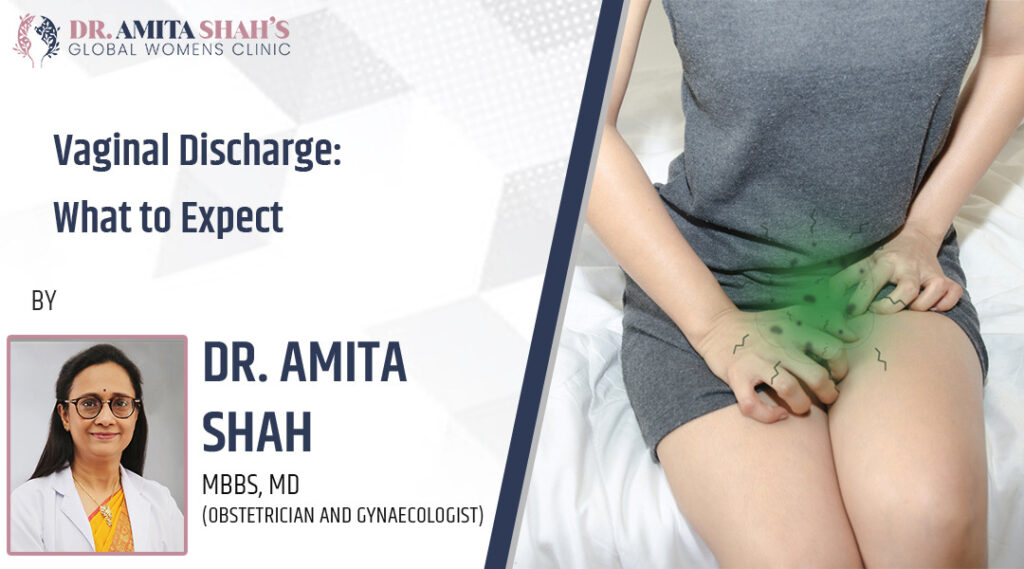Vaginal secretions that are clear and white are typical. Certain glands in the cervix create a natural lubricant that flows down your vagina, keeping it wet and healthy. Simply said, vaginal discharge is your vagina’s natural method of cleansing itself and a sign that it is entirely healthy.
However, if the discharge is smelly, a different colour (such as yellow or green), and causes itching and pain, it is likely caused by an infection. If the discharge is foul-smelling, irritating, or blood-stained, see a gynaecologist every once. For abnormal vaginal discharge and bleeding contact Dr Amita Shah one of the best gynaecologists in Gurgaon. In terms of pH, your vagina is more acidic than the rest of your body. This promotes the development of healthy bacteria such as lactobacilli while inhibiting the growth of harmful bacteria. You must practise appropriate personal hygiene to prevent upsetting the vaginal pH balance and thereby avoid vaginal infections such as bacterial vaginosis (BV).For abnormal vaginal discharge and bleeding contact Dr Amita Shah one of the best gynecologists in Gurgaon.

Here’s what you should do to maintain your vagina healthy and clean.
1. Make use of a high-quality intimate wash.
When it comes to cleanliness, the skin in your intimate region requires extra, sensitive attention. Washing with common soaps/gels may cause a pH imbalance, which can lead to issues including irritation, odour, and infections. If you already have an illness, washing with soap might aggravate the situation. Use a hypoallergenic intimate wash that has been dermatologically and gynaecologically tested. Pour a few drops on your palm and wash with it as you would liquid soap.
2. Only wash outside of your privates.
As previously said, the vagina may self-clean, which means you don’t have to wash the insides. Bathing the vagina on the inside might be dangerous. Only wash the exterior of your intimate region, including the vulva, vaginal lips, and the area surrounding the clitoris.
3. At least once a day, wash your vagina
To avoid germ transmission, you should wash your privates with warm water at least once a day, preferably after you have emptied your bowel. During your periods, be sure to wash with warm water at least twice.
4. Avoid spraying water straight into the vagina.
Bacteria may enter the vagina if water is sprayed directly on it. Allow the water to stream down from the top while washing gently.
5. No sponge or gloves
Your intimate skin is very fragile. Wash with your hands alone, never with anything abrasive.
6. Apply a soft towel
To absorb the water, use a soft, completely dry towel. Once every two days, wash this towel in warm water with a light soap.
7. Wipe clean
Wipe your intimate region clean from front to back, particularly if you’re using vaginal wipes or napkins.
8. Wash thoroughly before and after intercourse.
To avoid the formation and spread of hazardous germs, it is important to cleanse your intimate region before and after intercourse. Make sure your companion practises excellent hygiene as well, since illnesses may spread quickly. Also, after intercourse, pass urine. This will aid in the removal of any germs that may have travelled to the urethra, which is the tube that links the bladder right above the vaginal opening.
9. Avoid having sex during your menstruation.
If you’re menstruating, avoid being intimate since it might lead to diseases. Wait until the bleeding stops, particularly if you have a history of infections, itching, or painful skin.

10. Replace pads every 2 to 4 hours.
Using a sanitary napkin for more than 4 hours might lead to the growth of dangerous microorganisms. Change your pad every two to four hours to feel and stay clean, fresh, and sanitary.
11. Use tampons as little as possible.
You should be cautious if you use tampons. Tampons should be replaced regularly since they may produce toxic shock syndrome, which can be deadly. Tampons should not be used if you have an infection, and they should never be worn to bed.
12. Put on cotton panties.
Cotton clothing allows the skin to breathe, as opposed to synthetic clothing, which restricts air circulation. If there is no air circulation, humidity levels in the intimate region may rise, producing an ideal habitat for deadly germs to thrive. Soft, cotton panties should be used daily, while stylish ones should be reserved for special occasions. Also, avoid wearing clothing that is too tight, such as jeans, bottoms, and trousers.
































